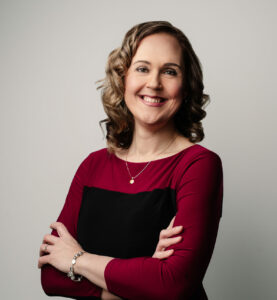
Marni Panas, Chair, CCDI
Allies are important. Allies are needed. Allies are essential. Sometimes you might find yourself in need of an ally. Other times you might find yourself to be in a position where you can be an ally to others.
As a professional woman in a senior leadership role, I enjoy many privileges where I can use my position to advocate for and amplify the voices of others. However, as a transgender woman, there have been many times where I’ve experienced harm and have needed people to be allies for me. I come across as a very confident, professional and outgoing person. And most of the time, I am all of these things. But sometimes, my tank of resilience is empty, and someone could say or do something, like misgender me, and I can hurt deeply. That’s when I need my allies.
I was having one such low day. I had gone to a petrol station to fuel up my car. The clerk misgendered me. Rather than correcting them, I retreated to my car feeling quite sad. A stranger approached me and said “I heard what happened. I’m sorry that it did. I just want you to know I think you’re beautiful.” That moment of kindness from someone who had absolutely no reason to be so to a stranger in a situation that didn’t involve them, completely changed my entire day.
Who is an ally?*
Anyone can be an ally. We can work towards being an effective ally to our family members, friends, colleagues and our neighbours.
What is an ally?
The word “ally” is not only a noun but also a verb. An action. A commitment to always standing up for others who experience harm, oppression and exclusion.
How can I be an effective ally?
There are many ways to be an ally. Start by asking “How can I be your ally?” or “What do I need to know about you and your experiences so I can be the best friend, leader, friend, parent, sibling, ally I can be to you?”
What does an ally do?
An ally:
- listens without judgment with the intent to learn and understand
- continues to seek knowledge to learn about others and themselves
- doesn’t rely on the person they are advocating for to invest their emotional energy in teaching them – rather, an ally commits to continual learning by taking their own initiative to seek credible educational resources
- is always keenly aware of the space they take up in any situation and recognises where other voices should be centred instead – an ally doesn’t centre their own experiences in the story but, rather, considers whose voices are missing in a meeting or discussion and then strives to ensure those voices are included
- takes the time to educate themselves on the terms, language, and definitions that are used by an individual or community
- learns what is offensive or harmful to the individual or community and doesn’t say or do it
- might get it wrong sometimes – yet when an ally is corrected by the individual or community, rather than defending their action, the ally thanks them for the opportunity to learn, apologises, and commits to doing better
- is aware that they might be the subject of backlash – therefore, an ally always considers their own safety (including physical, emotional, psychological, and professional) before advocating for an individual or group
- knows that if they are not able to intervene in the moment, they can often still check in with the recipient of the harmful behaviour
- never makes assumptions – and is aware that if you don’t know, you can ask.
An ally NEVER
- shares any part of someone else’s story without their consent
- discloses (outs) anything that an individual has shared with them such as their sexual orientation, gender identity, mental or physical health concerns, experiences with racism, etc. without their consent.
In addition to being disrespectful, sharing any of these details can put them at risk of harassment, discrimination, or physical or psychological harm.
I often think of the person who stood up for me at that petrol station. I hope she knows how grateful I am for that moment of allyship. The smallest acts of allyship can have the biggest impacts.
*Adapted from Alberta Health Services Change the Conversation: Being an Ally.
Marni Panas is the Director of Diversity, Equity, and Inclusion at ATCO. She has dedicated her career to creating safer, more welcoming, and inclusive workplaces and communities. She holds a degree in Health Administration and a Canadian Certified Inclusion Professional designation. Marni is the Chair of the Board of the Canadian Centre for Diversity and Inclusion.
Marni has contributed to legislation and policy protecting human rights for individuals at the provincial and federal levels in Canada. She was a member of the Advisory Committee that helped draft the apology that Prime Minister Justine Trudeau delivered to LGBTQ2S+ people in Canada in the House of Commons in November, 2017. You can also learn more about Marni in her TEDx talk “Finding Courage, Conquering Fear”.
DCA members can find out more about effective allyship by watching a recording of DCA’s event Allyship – an international perspective.
Useful resources and information:
- CCDI’s webinar on allyship
- Allyship: An Action Word by CCDI’s Devika Pandey
- Diversity, equity, and inclusion reading list, CCDI
- Leading practice – LGBTIQ+ Allies/Champions, DCA
- Becoming a better ally for inclusion, DCA blog by Castle Personnel CEO Brad Webb
- Count Me In Mini Ally Guide, ACON’s Pride Inclusion Program
